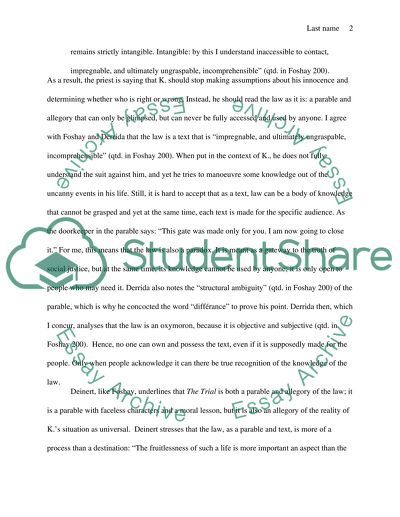Cite this document
(“Kafka's Parable of the Law in The Trial Essay Example | Topics and Well Written Essays - 1250 words”, n.d.)
Retrieved from https://studentshare.org/literature/1424321-kafka-s-parable-of-the-law-in-the-trial
Retrieved from https://studentshare.org/literature/1424321-kafka-s-parable-of-the-law-in-the-trial
(Kafka'S Parable of the Law in The Trial Essay Example | Topics and Well Written Essays - 1250 Words)
https://studentshare.org/literature/1424321-kafka-s-parable-of-the-law-in-the-trial.
https://studentshare.org/literature/1424321-kafka-s-parable-of-the-law-in-the-trial.
“Kafka'S Parable of the Law in The Trial Essay Example | Topics and Well Written Essays - 1250 Words”, n.d. https://studentshare.org/literature/1424321-kafka-s-parable-of-the-law-in-the-trial.


